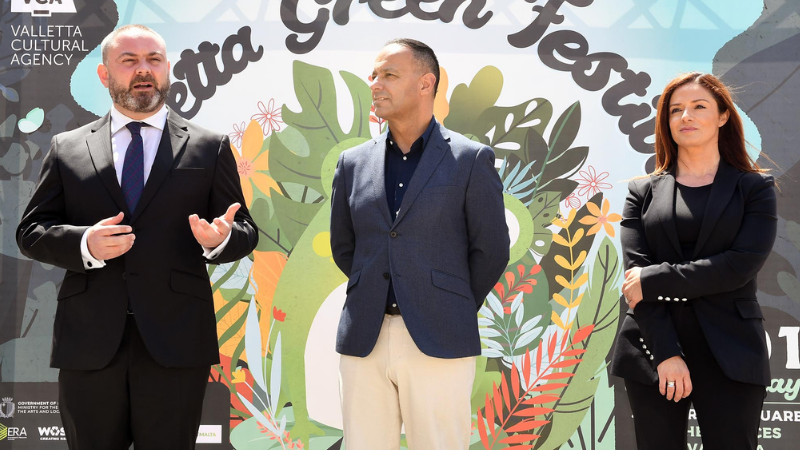As humanity faces the ever-present threat of climate change and countries across the world scramble to find solutions, a recent analysis of European countries’ progress on switching to renewable energy shows Malta is at the bottom of the list.
According to data compiled by Eurostat, Malta has, for the period 2004 – 2020, consistently ranked in the bottom three in terms of percentage of energy generated via renewable energy such as wind and solar power in EU member states.
As of 2020, Malta got just 10.7% of its energy from renewables, according to Eurostat, bringing Malta’s delay in catching up to its peers on a crucial source of greenhouse gases that contribute to climate change into sharp focus. At the other extremity of the rankings, Iceland tops the chart, sourcing 84% of its energy consumption from renewable sources.
The severity of Malta’s failure to keep up with other EU member states in the race towards carbon neutrality jars greatly with events which the government uses to promote itself as environmentally-conscious, with the Valletta Green Festival serving as a perfect example.
The event, which is primarily being organised by the Valletta Cultural Agency (VCA), the ministry for national heritage, arts, and local government, and the ministry for energy, the environment and enterprise, is ostensibly meant to promote awareness on the importance of open public spaces, the protection of natural habitats, and the country’s flora and fauna.
The main feature of the event, besides promoting government agencies, consists of the arrangement of 50,000 plants into the shape of a species known as Painted Frog, an expensive initiative which will do nothing to actually help Painted Frogs (or Malta’s generally fragile biodiversity) thrive.
According to Heritage Minister Owen Bonnici, the event is also meant to show off how the government’s promise to “introduce more urban greening” is being kept.
In the 2022 general elections, the Labour Party promised to invest €700 million in such urban greening projects, a proposal which, just like the Valletta Green Festival, fails to address the core issue of rampant over-development at the cost of natural and rural land.
The government’s electoral manifesto also outlined the Party’s promise to invest in a public-private partnership that would create an offshore renewable energy centre, along with a raft of schemes and tax breaks for companies and individuals who prioritise renewables when building new infrastructure.
While the promise of an offshore renewables centre does sound like a worthwhile solution, the government’s disastrous track record on the protection of the natural environment in general and the years of delays in inching towards carbon neutrality leave room for a reasonable amount of doubt on when such a project would be up and running and if so, whether it would be a case of too little, too late.
The urgency of the need to switch to renewables, on top of other interlinked issues such as planning and use of land, pollution and emissions, the fragility of Malta’s biodiversity and dwindling critical resources like groundwater further raise questions about the government’s commitment to resolving them.
One of the biggest contributors to Malta’s declining natural and rural environment is the fact that the Planning Authority as well as other planning and environment bodies like the Environment and Planning Review Tribunal fail to adequately enforce regulations meant to safeguard and protect public spaces.
In a country where even the prime minister is known to have previously carried out questionable property business dealings while serving as the Planning Authority’s lawyer, the lack of as much as a mention of reforms when it comes to both the Planning Authority and the Environment and Planning Review Tribunal is telling.
As for the other main issues, Malta does not fare too well, either. People living in Malta self-reported the highest level of exposure to particulate matter pollution in the EU in 2017, with the country’s notoriously car-centric culture further exacerbating the issue over the years. In 2020, Malta’s biodiversity was ranked as the most fragile in the world.
As for critical natural resources such as potable ground water, Malta ranked among the top 20 worst consumers of natural resources in the world, with the country’s rate of consumption outpacing its ability to produce natural resources for the past five decades.














İl Green week ta jason qeda mil parlament il gewwa ghax fil pjazza tat tritoni dawk il pots mimlin haxix hazin. Jekk hemm xi hadd irrabi il moghoz u johodhom hemm jaghmlu festa. Tal misthija tara turisti dehlin il belt b dik it telqa kolla u bankijiet ghandhom bzonn laqa ukoll please
This is so sad. Have noted that many people on this island give more importance to having a big car and material riches…they do not give two hoots about other people’s health. There is no environmental conscience whatsoever . If the government will not enforce strict penalties for breaking the law especially when it comes to the natural environment we are ALL doomed. Sorry to be so negative but we all need to wake up and realise in what a dire state the country is environmentally. Asthma, cancer, depression are 3 of the major killers here. Wake up guys and girls!!